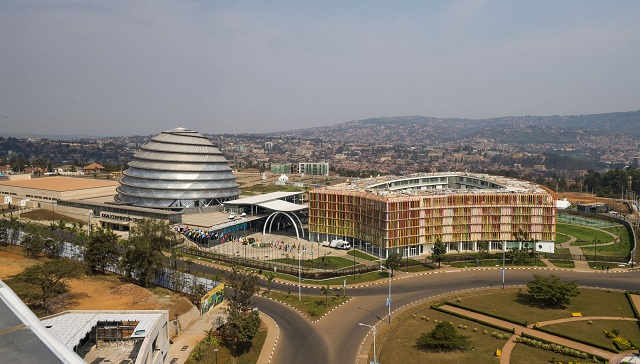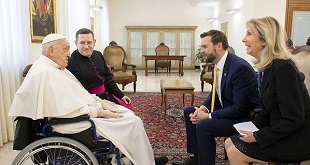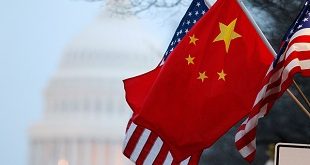
A micro-sociological personal perspective of the country
Kampala, Uganda | JUDE KAGORO | Rwanda is a country that is both understudied and misunderstood. Some people go to Rwanda sing praises of what they have seen and perhaps forget. Others, using euro-centric and Afro-pessimist lens, criticise uncritically. Some rely on age-old cliché to dismiss everything Rwanda may be doing right. What is not in doubt is that something is going on in that country. Many of us are likely to wake up, say 20 years from now, to a dream made true that we can’t explain.
This article is my introductory attempt at deconstructing Rwanda based on my personal interface with the country. I am still writing a more scholarly perspective based on my micro-sociological observations, in-depth interviews and informal conversions I have held with key personalities about Rwanda’s socio-economic miracle.
The first time I visited Rwanda was in August 1998 to watch an Africa Cup of Nations preliminary qualifying game between Uganda Cranes and Amavubi Stars. It ended goalless; the former having won the first leg in Kampala 5-0.
I returned to Kigali in March 2005; this time to watch Rwanda’s APR FC against Uganda’s KCC FC in the Africa Confederation cup. APR scored a very late winning goal exactly two minutes after President Kagame entered the stadium at Amahoro. Many in the stadium perceived it that the President had come with the most needed magic for APR players.
Though I am a professed follower of African football, the main reason I followed the Cranes and KCC to Kigali was to experience Rwanda firsthand. Here was a country that since childhood had remained a mystery to my imagination.
Having grown up in the western town of Fort Portal, which was the first metropolis to fall to Yoweri Museveni’s then-National Resistance Army (NRA) rebels in the 1980s; the legendary commanders of Rwandan origin, especially Fred Rwigyema and Paul Kagame, were brand names etched in my imagination. To these add Ugandan idols such as Salim Saleh, Elly Tumwine, Mugisha Muntu, David Tinyefuza and of course the overall commander Museveni.
These commanders had arrived like Hollywood characters, accompanied by widespread exaggerations of their achievements and fighting abilities. The commanders had acquired a “demi-god” status as narratives of their military exploits were produced and re-produced, both in formal and informal forums.
The narratives-cum-mythologies emphasised that it was only 27 men who began the struggle that conquered thousands of the “evil natured” soldiers of then-Ugandan President Milton Obote soldiers.
As children, we idolised and nicknamed ourselves after the meta-figures of the NRA revolution.
In October 1990, I vividly remember listening to the BBC news announcing the death of Major General Fred Rwigyema, which left me devastated—one of my childhood heroes had fallen. A few weeks later I managed to sell my goat to afford buying a white t-shirt with an Image of Fred Rwigyema. This t-shirt inscribed with words “Maj. Gen. Fred Rwigyema the Freedom Fighter” at the back was a treasure, which I guarded jealously until it was stolen by our house helper in July 1994.
After completing primary school I joined St. Leo’s College Kyegobe for my secondary education in 1991. On arrival at St. Leo’s, I found another “fairytale” that was told and re-told in different variations. That one-night, over 80 students of Rwandan origin had miraculously disappeared from the school to join the Rwandan Patriotic Front (RPF) struggle.
It was emphasised that no single person outside their operational structure detected the move. For some reason, the school still had a considerable number of students and teachers of Rwandan origin whom I associated with a great deal. Thereafter, the mayhem of the 1994 genocide disoriented my then unsophisticated perspective of Rwanda and of course challenging my understanding to inconceivable magnitude.
For two months, from November 2005 to January 2006, I stayed in Rwanda as a lead facilitator in peace and conflict analysis, at the Great Lakes Youth Peace Camp in the former Gikongoro Province. This project was funded by the Germany Development Service (DED), which at the time was my employer at Makerere University. This stay was more intense. I interacted with several Rwandan youths and, towards the end of training, we were joined by few young men and women from Burundi, DR Congo, Kenya and Uganda.
Though I was a facilitator, I must confess I learned more from the interface with the socio-political arena and most importantly from the students, some of whom were genocide survivors while others were relatives of the génocidaire.
My learning can be understood in Antonio Gramsci’s description of educational doctrine and practice; according to which the relationship between teacher and student is active and reciprocal so that every teacher is a student and every student is a teacher.
In this period, I understood better about the country; including a chance to attend Gacaca court sessions and visiting genocide memorial centers at Murambi and Kigali.
Meanwhile, the country was still unstable, and my attention was much on what happened during the genocide, accounts of the survivors and the looming insecurity. So I paid limited attention to any issues regarding the socio-economic progress the country was making then.
Thereafter, I came back to Uganda and in 2007 re-located to Germany for my PhD studies at Bayreuth University and later to work at Bremen University. For these ten or so years, my perspective of Rwanda was clouded in the negative reports of “human rights abuses” and “authoritarian nature of the regime” with negligible interludes of the socio-economic progress.
Rwanda has been and continues to be unfairly judged and its magical advancement treated with skepticism and contempt in some circles.
I returned to Rwanda in July 2016 and got the shock of my life.
Kigali was meticulously clean, green, organised, skyscrapers allover and the city methodically lit just like an average Germany city. The roads were incredible, flowers systematically planted and walkways noticeable everywhere. It was further shocking to see lights on highways from Kigali to up-country.
My night time experience around the city was indescribable. At about 9:30pm one night, Andrew Mwenda tried out an experiment; he told our driver to switch off the headlight and the street-lighting was actually enough for us to comfortably drive around. The same night I noticed Kigalians freely jogging, riding bicycles and some; including ladies, could be seen walking unaccompanied.
I have visited over 20 countries on the continent; including economic giants of Nigeria and South Africa, and can authoritatively make a claim that Kigali’s security architecture is unparalleled. Not even American cities would come close.
Meanwhile, I visited the Inspector General of Police (IGP) at the Police headquarters, which felt and looked like a five-star hotel. I had lunch at a military mess and toured a military college in Bugesera, which was yet another pleasant experience. I walked in and around a public hospital observing that every patient had a neat mosquito net, proper beddings and “enjoyed” enormous space. Obviously, all these public spaces shared a similar characteristic; they were clean, orderly, and organised.
I had officially been invited to Rwanda to attend the 22nd Liberation Day celebrations held on 4th July. As part of the celebrations I was privileged to witness President Paul Kagame’s official launch of the Rweru model village (imidugudu) in Bugesera District, Eastern Province. In just about three months, the Rwanda Defence Force (RDF) construction department had constructed this modern village to settle 104 families from high-risk zones.
This is just not a village but in my perspective a “miracle” village made possible by “magicians.” The village has a school of 17 classrooms, modern laboratories for science subjects, a health post, connection to electricity, water for all houses and internet connection. There is a modern market, a workshop place and a 12-kilometre road linking the village to the nearest trading centre.
At the launch, President Kagame kept time, his speech was brief and did not explicitly take credit for this grand achievement, only emphasizing to the audience that, “We have to keep our dignity (Agaciro) even when faced with poverty.”
The President stunned me; instead of throwing praise at the construction engineers, who in my opinion deserved it, he instead noticed a slight mistake on one of the windows at the school building.
I was later honored to meet the president at statehouse together with Andrew Mwenda, which was an overwhelming experience. He explained to us that in his worldview, “there are no small or big mistakes; all mistakes are mistakes and if considered small they multiply and then it becomes difficult to correct them.”
I found the President very thoughtful, calm and down-to-earth. His body language spoke volumes; clearly communicating that he was 100% present in our conversion, taking our arguments and viewpoints seriously. I remember telling him, “Mr. President you are a magician, what explains all these achievements, yet I know Rwanda is a poor country. How do you manage to pay the bills of the endless street and highway lights? How come no one steals the lights? How is it possible that all the public spaces I have visited share a similar character in organisation and outlook?”
The President laughed off the magician label explaining that everything I had seen was possible with commitment and clear ideology. I had not used the word magician casually; I meant it in its true sense, to me Rwanda is still like magic.
Meanwhile, the night before I met the president I had attended an RPF party near the Kigali Serena Hotel. This party was graced by virtually the entire government; ministers, security chiefs, opposition leaders, chief justice, permanent secretaries, governor central bank, CEOs of different companies and of course the President and the First Lady. The President’s security detail was relaxed to say the least and we easily danced and merry-made around the first family. This was another puzzle and quite unique, I don’t know where else it happens. Intrigued by this experience, I started writing an article titled “Dancing with the Government” but I stopped midway because I still wanted to learn more about the country before starting to weigh in on Rwanda.
This month (November 2017) I went back to Rwanda and gathered much more data that would allow for a better analysis and clearer understanding of Rwanda’s rapid socio-economic transformation. Soon, I will return to these pages and provide a micro-sociological perspective of the practices, processes, causes and consequences of the social change in the Rwandan psyche.
*****
Dr. Jude Kagoro from the Institute for Intercultural and International Studies (InIIS), University of Bremen, Mary-Somerville-Straße 7, 28359 Bremen, Germany
jude.kagoro@uni-bremen.de
 The Independent Uganda: You get the Truth we Pay the Price
The Independent Uganda: You get the Truth we Pay the Price




I will be looking forward for any of your future publications. I think it is important that African nations are portrayed in a more nuanced image. We are tired of the conventional black/white narratives surrounding African leaders, only seen as either power hungry dictators or saviours. And in this perspective Rwanda is a particularly interesting study. It is important to look at the development of African nations without the eurocentric lense that sets the criteria for discussion in a very narrow manner. I for one, would like to learn more about the agency and innovation of Africans, without overglorifying a single person or having moral condemnation as the only tangible point worth making.